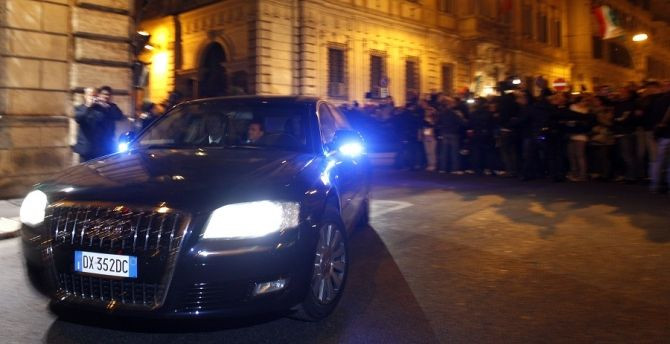Italy to Form New Gov't as Berlusconi Era Ends

Italy will seek to form a new government on Sunday after the resignation of long-time Prime Minister Silvio Berlusconi, as the nation faces a debt crisis that a new coalition of leaders will seek to tackle.
Berlusconi, who led the country for 17 years is expected to be succeeded by former European Commissioner Mario Monti. The former prime minister met with his likely successor on Saturday.
Berlusconi presented his resignation to President Giorgio Napolitano after the lower house of parliament passed budget reforms meant to spur growth and tackle the second-largest debt in the euro zone. Berlusconi had vowed on November 8 that he would resign following the budget’s passage.
As Berlusconi made his way in a vehicle to the President’s palace, he was met with derisive booing and shouting, according to reports.
The prime minister said the jeers were deeply saddening to him, a close associate told Italian news agency ANSA.
Berlusconi’s exit from power follows the recent resignation of Greek Prime Minister George Papandreou. Greece is facing much more dire circumstances than Italy. Papandreou’s resignation came with the condition that the governing coalition that would succeed his government would push to accept international financing tied to severe budget cuts.
Italy’s borrowing rates have been rising rapidly in the last week, creating concerns for investors.
The Senate passed the budget on Friday, setting the stage for Saturday’s vote.



























